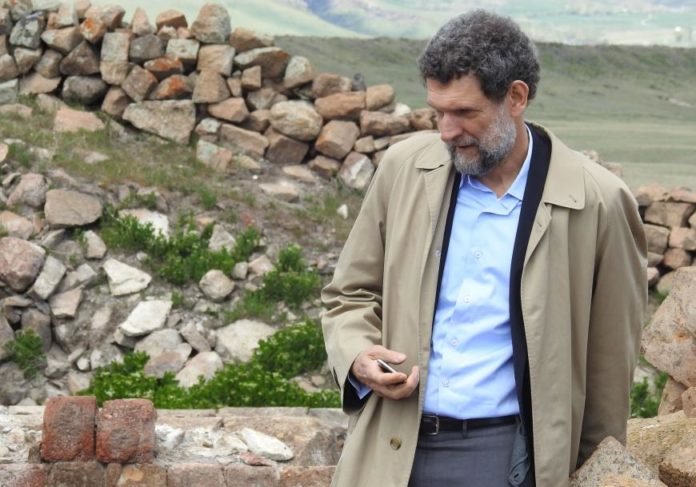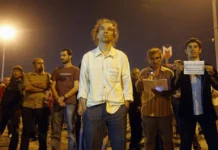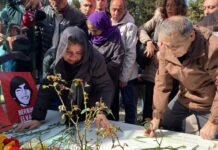A Turkish prosecutor is demanding aggravated life sentences for businessman and philanthropist Osman Kavala and architect Mücella Yapıcı on charges of “attempting to destroy the government of the Republic of Turkey” by instigating the anti-government Gezi Park protests of 2013, Turkish Minute reported.
The prosecutor is also seeking prison sentences of between 15 and 20 years for other defendants of the case — Çiğdem Mater Utku, Ali Hakan Altınay, Mine Özerden, Şerafettin Can Atalay, Tayfun Kahraman and Yiğit Ali Ekmekçi — on charges of “assisting an attempt to destroy the government of the Republic of Turkey.”
The İstanbul 30th High Criminal Court in February 2020 acquitted Kavala, Yapıcı and other defendants of charges linked to the 2013 protests, saying there was “not enough concrete evidence” against them. However, the İstanbul Regional Court’s 3rd Criminal Chamber, a higher court, overturned the ruling in January 2021.
Before the ruling was reversed, Kavala had already been hit with new charges of espionage, preventing him from being released from prison at the time.
The protests in 2013 erupted over government plans to demolish Gezi Park in Taksim. They quickly turned into mass anti-government demonstrations that were violently suppressed by the government, leading to the death of 11 protestors due to the use of disproportionate force by the police.
The 64-year-old civil society leader, who has been kept in jail since 2017 without conviction of any crime, is accused of financing the 2013 anti-government protests and playing a role in a 2016 coup attempt. If convicted, he could be jailed for life without the possibility of parole.
Turkey refuses to release Kavala despite a binding judgment of the European Court of Human Rights (ECtHR) in December 2019 finding that his detention for allegedly directing and financing the Gezi Park protests of 2013 and for alleged involvement in the failed coup of July 2016 was in pursuance of an “ulterior motive,” that of silencing him as a human rights defender.
Council of Europe (CoE)’s Committee of Ministers on Feb. 1 decided to take action against Turkey due to the philanthropist’s continued imprisonment and ordered that the case be submitted to the ECtHR for review, officially beginning an infringement procedure against Turkey.
Kavala has become a symbol to his supporters of the sweeping crackdown President Recep Tayyip Erdoğan unleashed after the failed coup.
In October 2021 the ambassadors of 10 countries, including the US, Germany and France, demanded Kavala’s immediate release in line with the 2019 ECtHR ruling. President Erdoğan threatened to expel the envoys before backing down.















